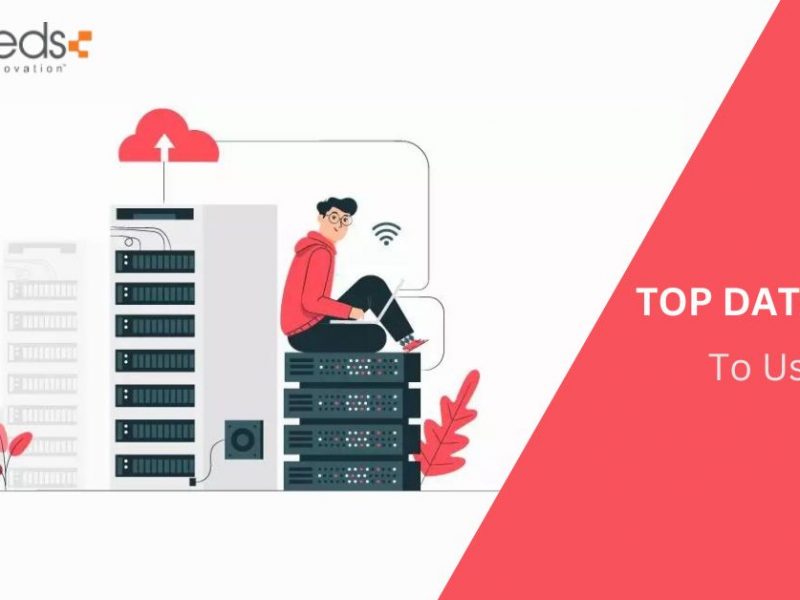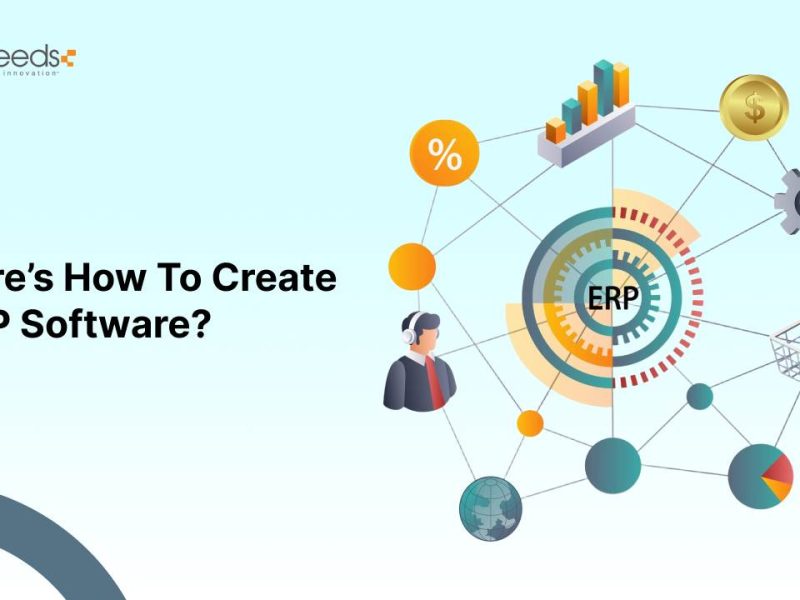As the world is finding new ways for a sustainable lifestyle, electric vehicles are seen as the most viable way of conserving the environment and promoting sustainability. These electric vehicles are not just conventional vehicles that use battery-powered electricity instead of traditional fuel but also have software that makes them smart or intelligent. The EV software is capable of controlling the vehicle’s functionality to deliver an unparalleled user experience. In this article, we will deliver multiple aspects of the electric vehicle software development along with the challenges and opportunities.
What is EV Software Development?
An electric vehicle software is like a mobile application that lets you connect with the outer world, work faster, and even learn new things but designed for your vehicles. You can manage, control, and improve the features and functions of your car through this software.
For e.g. EV software with AI and ML capabilities can determine the shortest and best route to your destination. Let’s know about the different types of electric vehicle software.
Types of Electric Vehicle Software:



1. Digital Cockpit Systems:
The electric vehicles are getting advanced and deliver digital driving experience to the drivers. This experience is possible through the digital cockpit systems.
These systems make it easier for the riders to check key metrics like speed, battery status, and navigation. The digital cockpit systems are also built with hands-free control over media and navigation.
2. Mobility Solutions and Connectivity Apps:
EV software development can provide a connected experience to the users. Mobility solutions and connectivity apps can bring all the gadgets and apps together. This allows users to access their vehicles remotely through smartphones. With smartphones, they can lock/unlock the doors, check real-time traffic, find nearby charging stations, and much more. These solutions and apps give convenience and accessibility to the users.
3. Self-Driving Vehicle Software:
Although self-driving cars are still far away from becoming a common norm, companies like Tesla are investing in these software. They integrate sensors, cameras, artificial intelligence, and other critical technology to provide a driverless experience.
However, implementing such software presents several issues, including human safety and compliance.
4. Vehicle Control and Management Systems:
These software manages the core functions and performance. The features can control the motor and balance power distribution between the battery, motor, and other systems. The selection of the driving mode is the most prevalent feature of this software.
5. EV Charging Management Software:
With the rise of EVs, riders also require charging management software or apps for battery health. EV charging management software provides several options related to EV charging like scheduling charging, facilitating payments, and much more.
6. Advanced Driver-Assistance Systems (ADAS):
ADAS has become a highly popular technology in both EVs and conventional vehicles. This software comes with adaptive cruise control to adjust the vehicle’s speed automatically. It has many advanced features such as lane-keeping assist, automatic emergency braking, and blind spot monitoring.
Why go for Electric Vehicle Software Development?



Do you know that in 2024, the revenue in the Electric Vehicle market is projected to reach a whopping $623.3 billion globally? With such an uprising of electric vehicles, there will always be a demand for the software which will run these vehicles. From checking battery health to charging status, there will be a crucial role of EV software. Here are the major needs of EV software development:
1. Managing Energy Efficiently:
The management of charging stations is much more difficult than the traditional gas stations. The energy should be controlled to distribute among different chargers as per the demand. With EV charging software, it would become easy to distribute the energy optimally and ensure that it complies with the regulations.
2. Battery Health Monitoring:
EV software solutions that display battery status can help track its health and performance. The ability to monitor battery health will assist EV owners in determining when their batteries need to be replaced.
3. Performance Optimization:
EV software improves the stability and functionality of vehicles. It controls the behavior and performance of electric vehicles. EV software can optimize the performance of EVs with optimal usage of power.
Essential Features To Consider in Electric Vehicle Software Development:



You must consider the trending and best features during EV software development. These features must align with the user demands and needs of the vehicles. Here are the important features of EV software:
1. Charge and Range Prediction:
This feature will provide the major information to the user about the battery and range. It will give relevant information on the battery life and the distance the user can cover within that battery. Simply input the location to your dashboard-integrated software and see if you have enough power to go there.
2. Anti-Theft Features:
The software should be equipped with anti-theft features like geo-location, geo-fencing, and lock/unlock capabilities which are manageable through mobile apps as well. All these features will improve the security of the vehicle from threats.
3. Pre-emptive Remote Diagnostics:
There should be regular data collection to check the vehicle’s health and notify if it requires any maintenance or troubleshooting. It will let you know if there is any part of the EV that needs attention and why.



4. Mobile Updates:
This feature employs cloud connectivity to automatically install and update software and firmware.
5. Charging Station Details:
This feature provides information on different charging stations to the users, such as the operating hours, facilities, distance, etc. It will provide convenience to the users as they can choose when and where to charge their vehicles and plan accordingly.
The button would be of use in case of emergencies such as the discharge of the battery, tyre puncture, etc. This button can be used within the app to send an email and SMS immediately to authorities and emergency contacts, as well as reveal your specific coordinates.
Key Components in Electric Vehicle Software Development:
The EV software is a complex ecosystem which consists of various technologies for delivering a seamless EV driving experience. It is essential to understand these components for developing reliable EV software. These components can improve the overall vehicle performance and user experience. Here are the major components of Electric Vehicle software development:
| Component | Purpose |
| Powertrain Control Module (PCM) | The PCM is like a maestro of the electric motor that runs your vehicle. It constantly monitors the motor’s performance and optimizes it for high efficiency. |
| Battery Management Systems (BMS) | A BMS is like a watchful guardian who keeps a close eye on the performance and efficiency of the battery. There are multiple checks of the battery such as voltage, temperate, charging state, etc. that it performs to ensure the battery operates safely and delivers optimal power. |
| Vehicle Control Unit (VCU) | A VCU is like a central processing unit that receives information from all the units such as motor, brakes, steering etc. It manages the effective coordination between these units. |
| Integration of Over-the-air Updates | OTA system is essential to ensure regular updates in the electric vehicle software which includes new features and fixing of existing bugs. |
| Infotainment System | The infotainment system improves the driving experience by bringing a touch of entertainment and convenience during the ride. The drivers can navigate, connect their phones, and manage various features of the car. |
Key Challenges in Electric Vehicle Software Development:



Certain challenges are associated with the EV software development. These are:
1. Compliance:
For higher safety of the inside passengers and drivers, the government of different nations are introducing stringent regulations in EVs. Therefore, it is critical to meet these regulations. Thus, the EV software must be by all these regulations and standards such as ISO 26262, UL4600, AUTOSAR, and ISO 21434.
2. Reliability:
The security, safety, and reliability of EV software are of utmost importance for a safer driving experience. Thus, the EV software must be tested in varied stages and scenarios to ensure maximum safety for the passengers. It must meet all the functional requirements. The software should also be validated to ensure that it is doing accurately as per its purpose.
3. Architecture Choice:
In EV software development, a critical aspect is the choice of the right architecture. The overall process of developing software for EVs is quite complex. There are a plethora of factors that developers have to consider such as scalability, security, flexibility, compliance, and interoperability of components.
4. Evolving Standards:
With the evolvement of EV standards, numerous advancements are being introduced. These regular changes cause issues of interoperability with 3rd party systems and OEMs.
Tech Stack To Develop an Electric Vehicle Software:
It is extremely crucial to choose the right tech stack while developing electric vehicle software. It will impact the overall performance and success of the software in the market. Here is the major tech stack to employ:
| Purpose | Technology |
| Frontend Development | ReactJS, Vue JS, HTML, CSS |
| Backend Development | Node.js, Python, Golang, Laravel |
| Push Notification | Push, Twilio, Firebase |
| Server | Nginx, Apache |
| Database | MySQL, PostgreSQL, MongoDB, Redis |
| Analytics | BigData, Hadoop, Spark, Apache Flink |
| Mobile Platform | Swift, Kotlin, Java, Flutter |
| Find Location | Google Places API, Google Maps, Core Location Frameworks |
| Cloud Services | AWS, Google Cloud, Microsoft Azure |
How much does it cost to develop EV Software?
It is difficult to identify the right cost of development without knowing the exact requirements. However, the software development costs lie between $50,000-$300,000 depending upon the type and complexity of the app. There will be many other factors that affect this cost such as features, development team location, and others.



Wrapping Up:
EVs are the future of mobility and that’s why there is a huge potential in tapping the EV software market. At Ebizneeds, the best software development company in India, we are having a team of experts with vast experience in software development. We can develop EV software as per your requirements at affordable costs. In India, we promise the best quality at much lower costs. Let us know your requirements.



Naveen Khanna is the CEO of eBizneeds, a company renowned for its bespoke web and mobile app development. By delivering high-end modern solutions all over the globe, Naveen takes pleasure in sharing his rich experiences and views on emerging technological trends. He has worked in many domains, from education, entertainment, banking, manufacturing, healthcare, and real estate, sharing rich experience in delivering innovative solutions.


